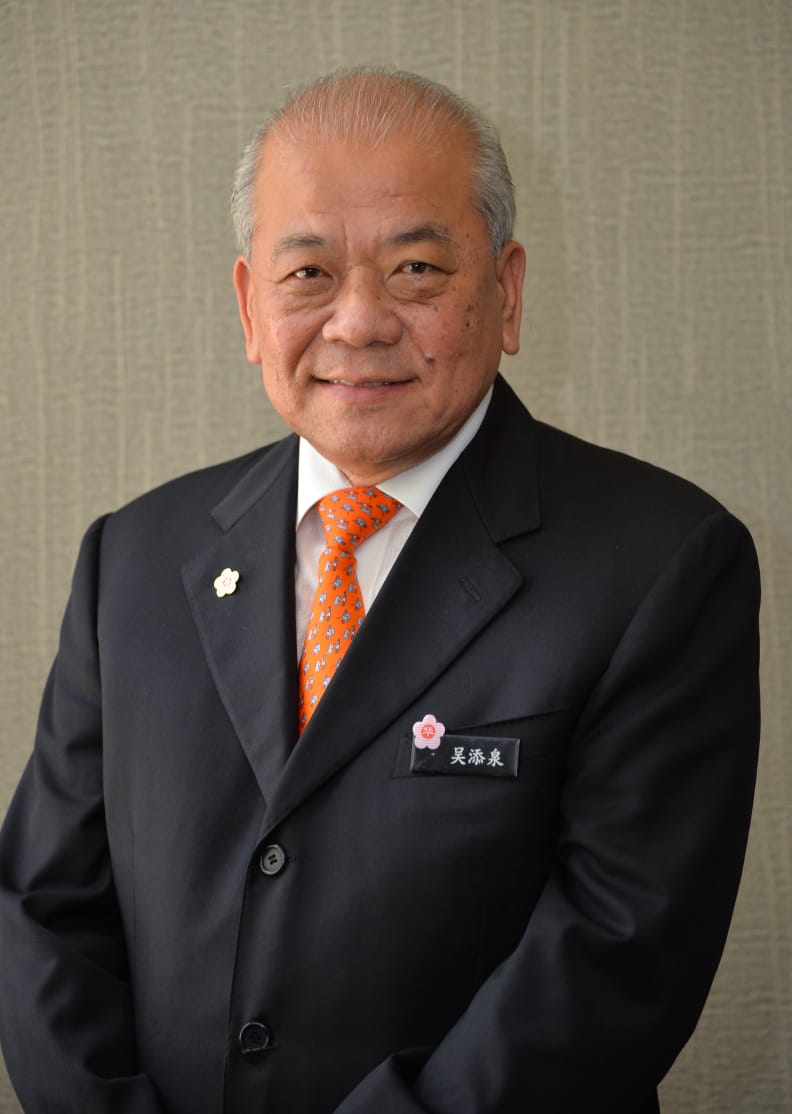KUALA LUMPUR: The Federation of Chinese Associations Malaysia (Huazong) has reiterated its call urging the government to clearly list out allocations for vernacular schools in the country, Chinese schools included, in Budget 2024.
It also hopes the government could adopt the same for the 63 Chinese independent high schools in the country, following it’s decision to institutionalise allocations of special annual grant for these schools, in recent years.
Urging this was its President Tan Sri T.C Goh, while commenting on the Budget 2024, which was tabled by the Prime Minister, Datuk Seri Anwar Ibrahim in Parliament, on Friday.
He also welcomed and commended the government’s move of introducing new initiatives under the Malaysia Visa Liberalisation Plan to attract more tourists and investors, especially from India and China. He acknowledged that such a move was appropriate and necessary, especially citing that besides being populous, both China and India are also important trading partners for Malaysia.
He was especially convinced that the government’s ongoing effort to bring in “high-spending group” of Chinese tourists and powerful Chinese corporations, coupled with the 50th anniversary celebrations of diplomatic ties between Malaysia and China, next year, would help stimulate and accelerate our economic growth.
“The government’s relaxation of the requirements for Malaysia My Second Home Programme (MM2H) too would certainly attract more overseas retirees and professionals of various sectors to come and invest in Malaysia, thus generating more foreign revenues for the country,” he said.
He was commenting on Budget 2024 themed “Reforming the economy, empowering the rakyat.”. It was also the second Budget tabled by Anwar since becoming Prime Minister and after forming the ‘unity government’ in last February. It was also the government’s biggest federal spending yet at RM393.8 billion to date.
He also supported the government for giving the lion’s share to the Ministry of Education, at RM58.7 billion under the 2024 Budget, an increase from RM55.2 billion set aside in the previous budget, and besides allocating RM1 billion for repair and maintenance of vernacular schools. He however hoped the government could clearly list out such allocations.
Nonetheless, he was puzzled by the exclusion of vernacular schools, Chinese schools included, from the allocation of RM2.5 for construction of 26 new national type secondary schools (SMK). He wondered if that means there won’t be any plans for relocations or constructions of new Chinese schools?
Besides this, he also welcomed the government’s allocation of RM 100 million to Chinese new villages to provide basic infrastructure and social amenities.
Goh went on to note that out of the RM393.8 billion allocations under the “Madani Budget”, more than 70% or RM303.8 billion is for operating expenditure and RM90 billion is for development expenditure, which is a 7% reduction compared to this year’s allocation of RM97 billion. There’s also another RM2 billion for contingency spending. This indicated that the government’s spending is larger than development; this coupled with the existing national debt of RM1.5 trillion or an equivalent of 82% of the gross domestic product (GDP), signifies that Malaysia’s finances will continue to face a huge challenge.
While he was hopeful with the government’s aspiration to see an increase in its revenue collection in 2024 from RM303.2 billion this year to RM307.6 billion, and its target to narrow the budget deficit from 5% to 4.3% of the GDP, he hoped the government could be more prudent with its spending, in order to achieve its target.
He said, Malaysia has been facing a financial deficit since 1998 and Budget 2024 will be the 26th year, which also means its national debt has doubled in the last 10 years, and its financial deficit has exceeded one third since its formation.
He thus opined that the government should muster greater political will to achieve the target of breaking even and to have surplus budget, instead of keep on borrowing and incurring debt.
He especially reiterated his call urging the government to take serious measures to gradually trim down our bloated civil service, in order to reduce government spending. Otherwise, its financial burden will only get worse.
Goh continued that while the people could sigh a major relief that the government didn’t bring back the Goods and Services Tax (GST), nonetheless its move to increase the sales and service tax (SST) from 6% to 8% would inevitably have far-reaching impact on the consumers, as even though it does not include services such as food and beverages, and telecommunications, its scope of taxable services was nonetheless expanded to include logistic services, brokerage, underwriting and karaoke.
Goh, who is also President of The Federation of Chinese Associations Sabah (FCAS) also welcomed the government’s move to increase the allocation for Sabah from RM6.5 billion to RM6.6 billion, and from RM5.6 billion to RM5.8 billion for Sarawak. He was optimistic that this would help boost developments in the two states.
He also commended the government for continuing to provide a wide range of incentives and welfare aids to low and medium income groups, besides introducing targeted subsidies in phases from next year onwards. These include subsidies for electricity and diesel. The savings will then be channelled to increase the cash aid given under the Rahmah Cash Aid scheme (STR), with the allocation increased from RM8 billion to RM10 billion in total.
He also hoped the government could adopt more prudent and rigorous financial management measures, while continuing to rely on the private sector to help stimulate domestic demand, towards achieving the goal of greater economic growth.
“Overall, there’s no major surprise in Budget 2024. It is basically a Budget that facilitates the government’s ongoing effort to steer the people towards economic recovery, and to cater to the needs of businesses,” he concluded.-pr/BNN






